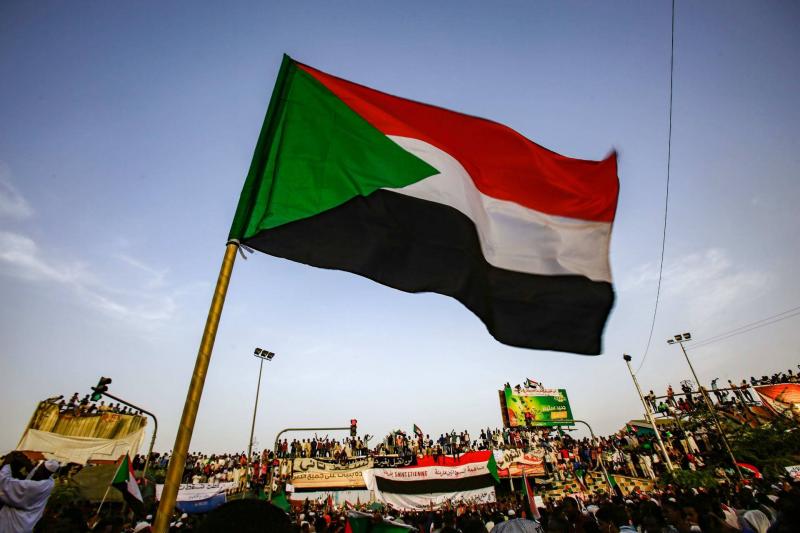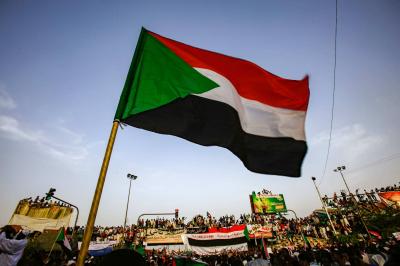The Sudanese army is fighting under extremely difficult and complex circumstances due to numerous internal and external factors. It faces a fierce and systematic media and psychological war aimed at breaking its resolve, at a time when Sudan is undergoing a perilous test that goes beyond the tremendous destruction and horrific abuse that has occurred, leading to a real existential threat to the country as we have known it.
Additionally, the army is fighting amid shortages of military supplies and what resembles a blockade to prevent it from obtaining its needs, aiming to weaken and pressure it. This situation is exacerbated by the scarcity of material resources after the state has lost most of its assets due to the massive destruction of its institutions, factories, and infrastructure, along with the paralysis affecting most aspects of life due to the war. Meanwhile, the “Rapid Support Forces” are receiving significant supplies of military equipment, as well as reinforcements from African diaspora Arabs and mercenaries, compensating for the considerable losses they have suffered since the war began.
It is not surprising that the army has faced setbacks and defeats under these complicated conditions; this is part of the nature of wars. Many armies around the world, including the American army, which is considered the strongest in the world, have faced setbacks and defeats from Vietnam to Afghanistan at the hands of irregular forces. The important thing is that despite all the difficult circumstances in which it fights, the Sudanese army has remained steadfast and has not broken as its adversaries hope.
Ironically, some who attack the army simultaneously expect it to liberate their homes and neighborhoods occupied by the “Rapid Support Forces” so they can return to them. Others who criticize it live in secure areas because of its presence there; otherwise, they would have joined the ranks of those who left their homes and properties and fled as soon as the “Rapid Support Forces” entered. The army represents security and is the protector of the country in this difficult situation, no matter how much its opponents try to undermine it, dissuade people, and discourage their spirits.
Many regional and international actors, including the American administration, do not want the Sudanese state to collapse in any form and stress the importance of preserving its institutions, including the army. This was clearly stated by the U.S. special envoy, Tom Periello, and it was heard loud and clear by those who participated in the conference of political and civil forces in Cairo days ago, where the Egyptian leadership emphasized the critical importance of preserving the state and its institutions, including the armed forces, for their role in protecting the country, its national security, and its unity in the face of any threats from within or outside, as is the case now.
There is widespread awareness that any collapse of the Sudanese army will lead the country into chaos with unknown consequences, potentially resulting in the collapse of the state, or what remains of it, which would have wide ramifications for the entire region and directly affect neighboring countries. Several neighboring countries, such as Ethiopia, Chad, and South Sudan, are experiencing fragile security situations and internal problems that make them unable to withstand the spillover effects of the war into their territories. Additionally, there are fears that Sudan could become a breeding ground for transnational terrorism groups that are always seeking chaotic environments and have expanded their activities in Africa in recent years.
The conviction among several nations that it is in their interest to prevent the collapse of the Sudanese army or state is increased by their perception that the “Rapid Support Forces” have largely become uncontrollable by their leadership after losing significant parts of their hard power, with large numbers of Arab diaspora mercenaries and others joining their ranks, whose main concern is looting property and vehicles, and indiscriminate killing. Consequently, some countries that have supported the “Rapid Support Forces” have been reassessing their positions to protect their interests and out of fear of the war’s effects spilling over to them. This explains, for instance, the visit of Ethiopian Prime Minister Abiy Ahmed to Port Sudan this week to meet with Burhan, and the talks suggesting that Chad has communicated with the leadership of the Sudanese army to mend relations, along with clandestine discussions at the intelligence level between the two countries.
In parallel, there are moves and communications to resume efforts to end the war, whether through the invitations received by the army regarding negotiations from the Jeddah platform, or through conferences such as those held in Cairo to arrange dialogue among political and civil forces to reach comprehensive consensus. There are also indications of battlefield developments that enhance the army's military position in the capital, the island region, and Darfur, signifying that the Sudanese landscape is poised for events that will impact the course of this war after the army has managed to withstand the significant challenges it faced, and has not broken as some had wagered or desired.




